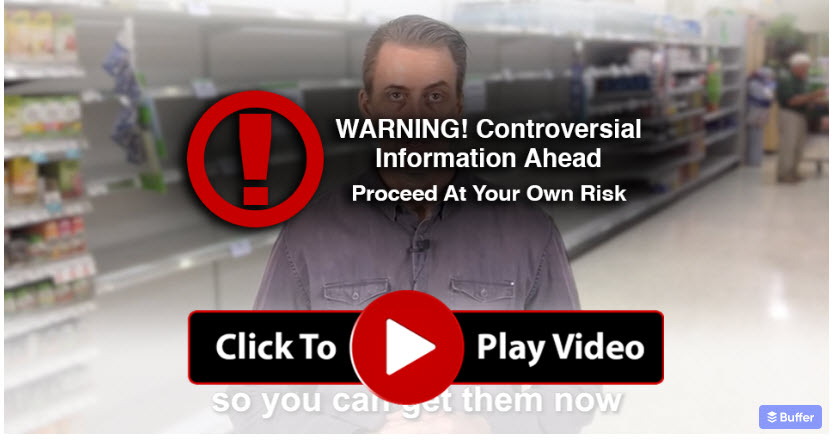Imagine you’re in the unfortunate situation of experiencing a health issue during an emergency. You might not have immediate access to a doctor or prescription medications, which can be worrisome. However, there is a solution that can provide relief and help manage your health issues – over-the-counter medications. In this article, we will explore how over-the-counter medications can be effectively used in emergencies, empowering you to take control of your well-being even in challenging circumstances.

Understanding over-the-counter (OTC) medications
Over-the-counter (OTC) medications, also known as nonprescription drugs, play a crucial role in managing various health issues without the need for a doctor’s prescription. These medications are easily accessible and can be found in pharmacies, grocery stores, and even online. Understanding how OTC medications work, their different types, safety considerations, and how to choose the right one is essential for effective self-care.
Types of OTC medications
There are several types of OTC medications available to address different health issues. Some commonly used categories include:
- Analgesics: These medications, such as acetaminophen and ibuprofen, provide relief from pain and reduce fever.
- Cough and cold medications: OTC cough syrups, decongestants, and expectorants help alleviate symptoms associated with colds and flu.
- Antihistamines: These medications are used to manage allergies, hay fever, and allergic reactions.
- Antacids: They provide relief from heartburn, indigestion, and acid reflux by neutralizing stomach acid.
- Topical creams and ointments: These products treat various skin conditions such as rashes, insect bites, and minor wounds.
It is important to consult a healthcare professional or read the packaging carefully to ensure you choose the appropriate OTC medication for your specific symptoms or condition.
Safety considerations
While OTC medications are generally safe when used as directed, it is crucial to be aware of certain safety considerations. Here are some key points to keep in mind:
- Dosage instructions: Always follow the recommended dosage instructions provided with the medication. Taking more than the recommended dose can be harmful.
- Allergies and sensitivities: Be aware of any known allergies or sensitivities to certain medications or ingredients. Read the labels carefully to avoid potential allergic reactions.
- Interactions with other medications: If you are currently taking prescription medications or have any medical conditions, consult your healthcare provider or pharmacist to ensure there are no interactions with OTC medications.
- Age restrictions: Some OTC medications may have age restrictions, especially for infants, young children, and the elderly. Ensure you choose the appropriate medication for the intended age group.
- Pregnancy and breastfeeding: Certain OTC medications may not be safe for use during pregnancy or while breastfeeding. Consult your healthcare provider for guidance.
By being informed about these safety considerations, you can use OTC medications responsibly and reduce potential risks.
How to choose the right OTC medication
With the wide range of OTC medications available, it can be overwhelming to select the right one for your needs. Here are some helpful tips to guide you in choosing the appropriate OTC medication:
- Identify your symptoms: Clearly understand the specific symptoms you are experiencing. This will help narrow down the type of medication you may need. For example, if you have a headache and fever, an analgesic like acetaminophen or ibuprofen may be suitable.
- Read the labels: Carefully read the labels of OTC medications to ensure they are designed to address your specific symptoms. Look for keywords such as “headache relief,” “cough suppressant,” or “allergy relief.”
- Consider your health conditions: If you have any underlying health conditions, such as high blood pressure or diabetes, it’s important to choose medications that are safe for those conditions. Seek advice from a healthcare professional or pharmacist if needed.
- Seek professional advice: If you are unsure about which OTC medication to choose, don’t hesitate to consult a healthcare professional or pharmacist. They can provide guidance based on your specific symptoms or condition.
By being selective and well-informed, you can choose the most appropriate OTC medication for your needs, ensuring effective relief and minimizing any potential risks.
Common health issues and OTC treatments
OTC medications are commonly used to manage various health issues. Understanding which OTC treatments are suitable for different conditions can help you make informed decisions.
Cold and flu symptoms
Cold and flu symptoms such as congestion, cough, sore throat, and fever can be effectively managed with several OTC medications. Here are some commonly used treatments:
- Decongestants: These medications help relieve nasal congestion by constricting the blood vessels. They may be available in pill, liquid, or nasal spray forms.
- Cough syrups and expectorants: OTC cough syrups can help suppress coughs or promote coughing to expel phlegm. Expectorants can help thin and loosen mucus, making it easier to cough up.
- Analgesics and antipyretics: OTC pain relievers and fever reducers like acetaminophen or ibuprofen can provide relief from headaches, body aches, and fever associated with colds and flu.
Remember to read the labels carefully and follow the dosage instructions when using OTC medications for cold and flu symptoms.
Allergies and allergic reactions
Allergies can cause a range of symptoms, including sneezing, itching, watery eyes, and a runny nose. OTC medications can help manage these symptoms effectively. Here are some common options:
- Antihistamines: These medications block the effects of histamines, reducing allergic reactions. They are available in both drowsy and non-drowsy formulations.
- Nasal sprays: OTC nasal sprays containing corticosteroids can help alleviate nasal congestion, inflammation, and other allergy-related symptoms.
- Eye drops: OTC eye drops provide relief from itchy and watery eyes caused by allergies.
It is important to choose the appropriate OTC medication based on your specific allergy symptoms and consult a healthcare professional if needed.
Pain and inflammation
OTC medications are commonly used for various types of pain and inflammation, such as headaches, muscle aches, and joint pain. Here are some options:
- Analgesics: Both acetaminophen and nonsteroidal anti-inflammatory drugs (NSAIDs) like ibuprofen and naproxen can provide relief from pain and reduce inflammation.
- Topical treatments: OTC creams, gels, or patches containing ingredients like menthol or capsaicin can offer localized pain relief for sore muscles or joints.
- Rubefacients: These creams or ointments create a sensation of heat or cooling, providing temporary relief from pain.
Always follow the instructions for safe and appropriate use of OTC medications for pain and inflammation.
Digestive issues
Digestive issues such as heartburn, indigestion, constipation, and diarrhea can be effectively managed with OTC medications. Some commonly used treatments include:
- Antacids: These medications neutralize stomach acid and provide relief from heartburn, acid reflux, and indigestion.
- Acid reducers: OTC acid reducers, such as H2 blockers (e.g., ranitidine) or proton pump inhibitors (e.g., omeprazole), can help reduce the production of stomach acid.
- Laxatives and anti-diarrheal medications: Depending on your specific digestive issue, OTC laxatives can relieve constipation while anti-diarrheal medications can alleviate diarrhea symptoms.
Carefully read the labels and follow the instructions for OTC medications to effectively manage digestive issues.
Skin problems
OTC medications are often used to address various skin problems, including rashes, insect bites, and minor wounds. Some common OTC treatments for skin problems include:
- Topical corticosteroids: These creams or ointments can help reduce inflammation and relieve itching associated with skin rashes or allergic reactions.
- Antiseptic solutions: OTC antiseptic solutions, such as hydrogen peroxide or povidone-iodine, can be used to clean minor wounds and prevent infection.
- Hydrocortisone creams: These OTC creams can provide relief from itching, redness, and inflammation caused by insect bites, poison ivy, or other skin irritations.
Always clean and properly care for the affected area before applying any OTC medications for skin problems.
By understanding the suitable OTC treatments for common health issues, you can effectively manage symptoms and promote your overall well-being. Remember to consult a healthcare professional if you have any concerns or if symptoms persist.
Creating an emergency OTC medication kit
In emergencies or situations where immediate medical attention may not be available, having an emergency OTC medication kit can be invaluable. This kit should include essential OTC medications and be properly stored for easy access.
Essential OTC medications to include
Your emergency OTC medication kit should contain key medications that can address a variety of health issues. Here are some essentials to include:
- Pain relievers: Acetaminophen and ibuprofen can provide relief from pain and reduce fever.
- Antihistamines: These medications help manage allergies, hay fever, and allergic reactions.
- Cough and cold medications: OTC cough syrups, decongestants, and expectorants can alleviate symptoms associated with colds and flu.
- Antacids: They provide relief from heartburn, indigestion, and acid reflux.
- Topical creams and ointments: Include products that treat common skin problems such as rashes, insect bites, and minor wounds.
It is crucial to periodically check the expiration dates of the medications in your emergency kit and replace any that are expired or no longer suitable for use.
Proper storage and expiration dates
To ensure the efficacy and safety of your emergency OTC medication kit, proper storage is vital. Here are some guidelines to follow:
- Store in a cool, dry place: Avoid exposing your OTC medications to extreme heat, moisture, or direct sunlight.
- Keep out of reach of children and pets: Store your medications in a secure location to prevent accidental ingestion.
- Use proper packaging: Consider using a dedicated, easily identifiable container or bag for your emergency OTC medication kit.
- Check expiration dates regularly: OTC medications have expiration dates printed on their packaging. Discard any medications that have expired or show signs of deterioration, such as changes in color, texture, or odor.
Regularly check and restock your emergency OTC medication kit to ensure you have an adequate supply of the essential medications you might need in an emergency.
Considerations for specific health conditions
If you or a family member has specific health conditions, such as allergies, asthma, or chronic illnesses, it is important to tailor your emergency OTC medication kit accordingly. Consult a healthcare professional for guidance on the appropriate medications to include.
For example, individuals with asthma may need to include a rescue inhaler in their emergency kit, while those with severe allergies may require an epinephrine auto-injector.
By taking into account the specific health conditions of you and your loved ones, your emergency OTC medication kit can be better equipped to address potential health emergencies.
Administering OTC medications in emergencies
In emergency situations, it may become necessary to administer OTC medications to yourself or others. It is important to be aware of dosage guidelines, precautions, potential side effects, and when to seek medical help.
Dosage guidelines
When administering OTC medications, it is crucial to follow the recommended dosage guidelines provided with the medication. Consider these points:
- Age and weight considerations: Dosages may be different for adults, children, and infants. Follow the age and weight guidelines provided with the medication.
- Do not exceed the recommended dose: Taking more than the recommended dose can lead to serious health consequences.
- Use appropriate measuring devices: Use the included measuring cups, spoons, or droppers provided with the medication to ensure accurate dosing.
- Read the instructions carefully: Some medications may have specific instructions regarding administration, such as taking with food or avoiding certain activities or substances.
If you are unsure about the correct dosage for yourself or others, consult a healthcare professional or pharmacist for guidance.
Precautions and potential side effects
While OTC medications are generally safe when used as directed, it is important to be aware of potential precautions and side effects. Here are some considerations:
- Allergic reactions: Some individuals may have allergies or sensitivities to specific medications or ingredients. Be vigilant for any signs of an allergic reaction, such as rash, itching, or difficulty breathing. Discontinue use and seek medical help if an allergic reaction occurs.
- Interaction with other medications: OTC medications may interact with prescription medications or other supplements. If you or the person you are administering medication to are currently taking other medications, consult a healthcare professional or pharmacist to ensure there are no potential interactions.
- Potential side effects: Some OTC medications may cause side effects in certain individuals. Read the labels and be aware of potential side effects, such as drowsiness, dizziness, or upset stomach. If side effects persist or become severe, consult a healthcare professional.
By being cautious and attentive to potential precautions and side effects, you can administer OTC medications safely and effectively in emergency situations.
When to seek medical help
While OTC medications can provide temporary relief in emergencies, it is important to know when to seek medical help. Consider the following scenarios:
- Severe symptoms: If symptoms worsen or become severe, it may indicate a more serious underlying condition that requires medical attention.
- Allergic reactions: If an allergic reaction occurs after taking an OTC medication, seek immediate medical help. Severe allergic reactions can be life-threatening.
- Persistent symptoms: If symptoms persist or do not improve after several days of OTC treatment, it is advisable to consult a healthcare professional.
- New or unfamiliar symptoms: If new or unfamiliar symptoms arise, especially if unrelated to the condition being treated, consult a healthcare professional.
Do not hesitate to contact emergency medical services if you or someone else experiences a medical emergency or shows signs of a severe reaction to medication.

Alternative options to OTC medications
While OTC medications are commonly used for self-care, there are alternative options worth considering. These alternatives include home remedies, natural supplements, and consulting a healthcare professional.
Home remedies
Many common health issues can be effectively managed with simple home remedies. Here are a few examples:
- Cold and flu symptoms: Resting, drinking plenty of fluids, gargling with warm saltwater for a sore throat, and using a humidifier can provide relief.
- Allergies: Reducing exposure to allergens, saline nasal rinses, and applying cold compresses to alleviate symptoms.
- Pain and inflammation: Applying ice packs, using heat therapy, practicing relaxation techniques, or engaging in gentle exercise may help manage pain.
- Digestive issues: Modifying your diet, eating smaller meals, and avoiding trigger foods can alleviate some digestive problems.
- Skin problems: Keeping the affected area clean and dry, using mild soaps, and applying aloe vera or tea tree oil may promote healing.
While home remedies can be effective for mild or temporary conditions, it is important to consult a healthcare professional if symptoms persist or worsen.
Natural supplements
Some individuals prefer natural supplements over OTC medications. Natural supplements, such as herbal remedies or vitamins, can be used for various health issues. However, it is crucial to approach natural supplements with caution:
- Consult a healthcare professional: Before starting any natural supplement, consult a healthcare professional for guidance, especially if you have underlying health conditions or are taking other medications.
- Research and quality control: Look for reputable brands that adhere to quality control standards, such as Good Manufacturing Practices (GMP). Research the supplement’s ingredients, potential side effects, and interactions with other medications.
- Be cautious with dosages: Follow the recommended dosages and do not exceed them. Natural supplements can still have side effects or interactions with other substances.
Remember, natural supplements may not have undergone the same rigorous testing and regulation as OTC medications. Exercise prudence and seek professional advice when considering natural supplements.
Consulting a healthcare professional
In certain situations, it is best to consult a healthcare professional rather than relying solely on OTC medications or alternative options. Healthcare professionals have the expertise to diagnose and treat underlying conditions effectively. Seek their advice if:
- Symptoms persist or worsen: If OTC medications or home remedies do not alleviate symptoms, consulting a healthcare professional can help identify the underlying cause and provide suitable treatment.
- Chronic or recurring conditions: If you have a chronic condition or frequently experience recurring symptoms, a healthcare professional can offer a more tailored treatment plan.
- Uncertainty or concerns: If you feel unsure about managing your symptoms or have concerns about potential interactions between medications or treatments, seek professional advice.
Healthcare professionals can provide personalized recommendations, offer diagnostic tests if necessary, and ensure you receive the most appropriate and effective treatment for your specific condition.
Special considerations for vulnerable populations
Certain populations, such as infants and young children, elderly individuals, pregnant women, and those with chronic illnesses, require special considerations when it comes to using OTC medications.
Infants and young children
Parents or caregivers of infants and young children need to be cautious when using OTC medications. Consider the following:
- Consult a pediatrician: Before giving any OTC medications to infants or young children, seek guidance from a pediatrician to ensure appropriate dosing and safety.
- Age and weight-based dosing: Follow the dosing instructions precisely, considering the child’s age and weight. Use measuring devices provided with the medication for accuracy.
- Use age-appropriate formulas: Some OTC medications have specific formulations for infants and children. Do not give adult medications to infants or young children without medical advice.
- Avoid certain medications: Certain OTC medications, such as cough and cold products, are not recommended for infants or very young children due to potential risks. Follow the guidance of healthcare professionals or pediatricians in this regard.
It is important to prioritize the guidance of healthcare professionals and follow pediatricians’ recommendations when it comes to using OTC medications for infants and young children.
Elderly individuals
As we age, our bodies may respond differently to medications. Consider these considerations for elderly individuals:
- Consult healthcare professionals: Elderly individuals should consult healthcare professionals or pharmacists for guidance on suitable OTC medications, considering any age-related health conditions or medications being taken.
- Dosage adjustments: Aging may affect how medications are processed in the body. Healthcare professionals can recommend appropriate dosage adjustments to ensure safety and efficacy.
- Be aware of interactions: Older adults commonly take multiple medications, which can increase the risk of drug interactions. Consult a healthcare professional or pharmacist to identify potential interactions and mitigate risks.
- Read labels carefully: Pay close attention to the labels and instructions on OTC medications, especially any warnings or precautions specific to the elderly population.
By being proactive and seeking professional advice, elderly individuals can safely and effectively use OTC medications as part of their self-care routine.
Pregnant women
Pregnant women need to exercise caution when considering OTC medications due to potential effects on the developing fetus. Here are some considerations:
- Consult healthcare professionals: Pregnant women should consult healthcare professionals, such as obstetricians or midwives, before using any OTC medications during pregnancy.
- Minimize medication use during the first trimester: It is generally advised to avoid unnecessary medication use during the first trimester when the baby is most vulnerable to potential risks.
- Choose pregnancy-safe medications: Some OTC medications have specific warnings or are not recommended for use during pregnancy. Ensure you choose medications that are safe for pregnant women based on healthcare professionals’ advice.
- Consider non-medication alternatives: In some cases, non-pharmacological approaches such as lifestyle modifications or natural remedies may be the preferred option.
It is essential to prioritize the health and safety of both the mother and unborn child by seeking professional guidance and using OTC medications cautiously during pregnancy.
People with chronic illnesses
Individuals with chronic illnesses need to be cautious when using OTC medications, as they may have specific interactions or contraindications. Consider the following:
- Consult healthcare professionals: Individuals with chronic illnesses should consult their primary healthcare provider for guidance on the suitability and safety of OTC medications, considering their specific conditions.
- Medication interactions: OTC medications may interact with prescription medications used to manage chronic illnesses. Consult healthcare professionals or pharmacists to identify potential interactions and reduce risks.
- Avoid exacerbation of symptoms: Some OTC medications may worsen symptoms or have contraindications for certain chronic illnesses. Healthcare professionals can provide guidance on which OTC options are most suitable.
By working closely with healthcare professionals, individuals with chronic illnesses can navigate the OTC medication landscape effectively and ensure their safety and well-being.

Cautions and limitations of using OTC medications
While OTC medications can be beneficial for managing various health issues, it is important to be aware of some cautions and limitations associated with their use.
Drug interactions
Certain OTC medications can interact with other medications, including prescription drugs, herbal supplements, or natural remedies. These interactions can reduce the efficacy of the medications or lead to unexpected side effects. Here are some considerations:
- Consult healthcare professionals: If you are taking prescription medications or other supplements, consult a healthcare professional to ensure there are no potential interactions with OTC medications.
- Read labels and warnings: OTC medications often contain warnings about potential drug interactions. Take the time to carefully read labels and packaging before using them.
By being diligent and seeking professional advice, you can minimize the risks of adverse drug interactions.
Excessive use and dependency
Using OTC medications excessively or for prolonged periods can be problematic. Consider the following:
- Follow recommended dosages: Do not exceed the recommended dosages, as doing so can lead to serious health consequences.
- Time limitations: OTC medications are typically intended for short-term use. If symptoms persist or worsen, consult a healthcare professional for further evaluation.
- Long-term reliance: If you find yourself consistently relying on OTC medications for symptom relief, it may indicate an underlying issue that requires medical attention. Consult a healthcare professional to address the root cause rather than masking symptoms with OTC medications.
It is important to use OTC medications as intended and to seek professional help if symptoms persist or if long-term reliance becomes necessary.
When not to use OTC medications
There are certain situations when OTC medications may not be appropriate or safe to use. Consider the following:
- Severe symptoms or medical emergencies: If you or someone else is experiencing severe symptoms or a medical emergency, do not rely solely on OTC medications. Contact emergency medical services immediately.
- Chronic conditions or undiagnosed symptoms: If you have chronic conditions or undiagnosed symptoms, consult a healthcare professional rather than self-medicating with OTC medications.
- Allergic reactions or known sensitivities: If you have a known allergy or sensitivity to certain medications or ingredients, avoid using those OTC products. Consult a healthcare professional for alternative options.
- Age or health restrictions: Some OTC medications may have age or health restrictions. Always read labels and consult a healthcare professional if you have any doubts about the suitability of a medication.
It is crucial to prioritize your health and safety by seeking appropriate medical attention when necessary and avoiding the use of OTC medications in certain circumstances.
Educating yourself on OTC medications
To effectively use and benefit from OTC medications, it is important to educate yourself on their proper usage, active ingredients, and potential effects.
Reading labels and instructions
When purchasing and using OTC medications, reading the labels and instructions is essential. Consider the following guidelines:
- Read labels carefully: Pay close attention to dosage instructions, warnings, precautions, and potential side effects listed on the packaging.
- Note active ingredients: OTC medications may contain different active ingredients for similar symptoms. Be aware of the active ingredients in the medication you are using to avoid duplication or potential interactions.
- Keep packaging for reference: Retain the original packaging, especially if it contains additional information or instructions you may need to refer back to.
By carefully reading labels and instructions, you can ensure safe and effective use of OTC medications.
Understanding active ingredients and their effects
Active ingredients are the specific substances responsible for the therapeutic effects of OTC medications. Consider these points:
- Learn about common active ingredients: Familiarize yourself with commonly used active ingredients and their effects on different symptoms or conditions. Understanding the actions of these ingredients can help you choose the most appropriate OTC medication for your needs.
- Avoid duplication: Using multiple OTC medications with similar active ingredients can lead to unintentional excessive dosing or increased risk of side effects. Be aware of the active ingredients in each medication to avoid duplication.
By understanding the active ingredients in OTC medications, you can make informed choices and ensure their safe and effective use.
Knowing your limitations
It is important to recognize that OTC medications have limitations and may not always be the most suitable solution for your health needs. Consider the following:
- Recognize the scope of OTC medications: OTC medications are designed for self-care and managing common health issues. They are not intended to treat complex or chronic conditions.
- Seek professional advice when needed: If you have concerns, questions, or persistent symptoms, consult a healthcare professional for proper evaluation and treatment.
By acknowledging the limitations of OTC medications and seeking professional guidance when necessary, you can make informed decisions about your health and well-being.
Legal and regulatory aspects of OTC medications
OTC medications are regulated to ensure their safety and efficacy. Understanding the legal and regulatory aspects can help you make informed decisions about their selection and use.
FDA regulations and safety standards
In the United States, the Food and Drug Administration (FDA) regulates OTC medications. Consider the following:
- OTC monograph system: The FDA classifies OTC medications into therapeutic categories and establishes monographs that define the active ingredients, labeling, and usage guidelines for each category.
- Safety and efficacy requirements: OTC medications must meet specific safety and efficacy requirements as determined by the FDA. This ensures that when used as directed, OTC medications are safe and beneficial for consumers.
- Labeling requirements: The FDA mandates specific labeling requirements for OTC medications to provide important information, dosage instructions, warnings, and precautions to consumers.
By adhering to FDA-regulated OTC medications, you can have confidence in their safety and effectiveness.
Importance of seeking professional advice
While OTC medications are accessible without a prescription, it is still important to seek professional advice when needed. Here’s why:
- Healthcare professional guidance: Healthcare professionals, such as pharmacists or doctors, have the expertise to provide personalized recommendations based on your specific needs, health conditions, and potential interactions.
- Diagnosis and treatment: Self-diagnosing and self-medicating may not always lead to accurate treatment. Consulting healthcare professionals can ensure proper diagnosis and the most effective treatment for your condition.
Professionals can offer valuable insights and contribute to the safe and effective use of OTC medications.
Potential risks and liabilities
Using OTC medications comes with some potential risks and liabilities. Consider the following:
- Adverse reactions: While rare, some individuals may experience adverse reactions to OTC medications. By reading labels, being aware of potential side effects, and following appropriate usage guidelines, you can minimize these risks.
- Liability for misuse: Misusing OTC medications or disregarding dosage instructions can have serious consequences. Take personal responsibility for using OTC medications safely and appropriately.
By understanding the potential risks and liabilities, you can use OTC medications responsibly and mitigate any potential adverse outcomes.
Conclusion
Over-the-counter (OTC) medications are a valuable resource for managing common health issues and emergencies. By understanding the different types of OTC medications, safety considerations, and how to choose the right ones, you can confidently address various health concerns. Remember to consider alternative options, such as home remedies or consulting a healthcare professional, when appropriate. For vulnerable populations and individuals with chronic illnesses, special considerations and professional guidance are essential. Always prioritize safety, stay informed, and seek professional advice when needed. By educating yourself on OTC medications, you can effectively manage your health and well-being.






